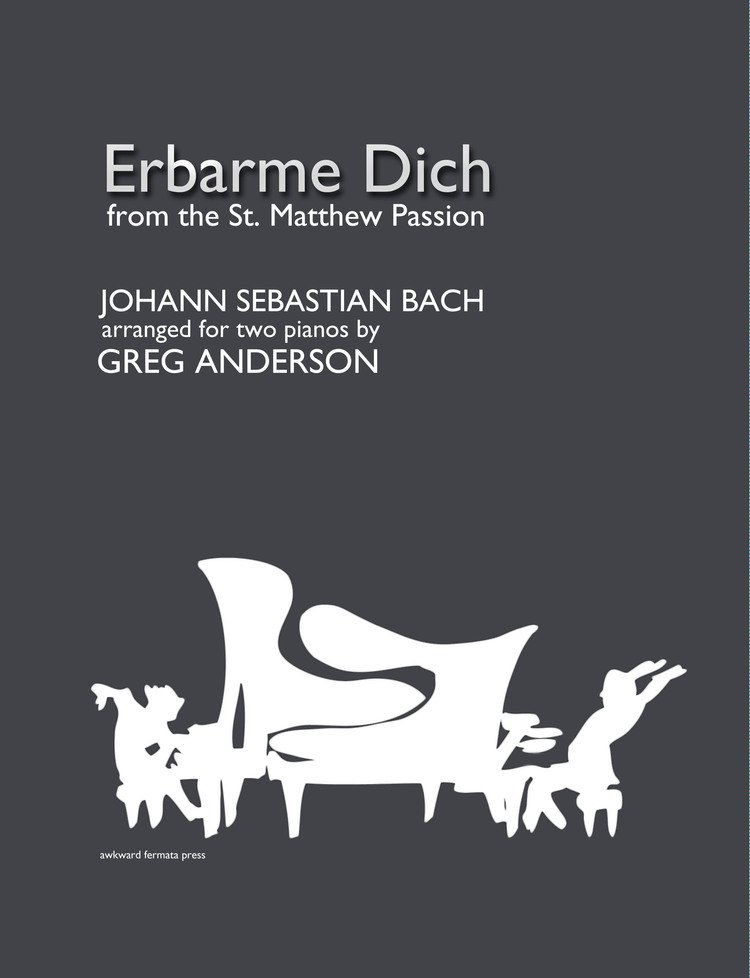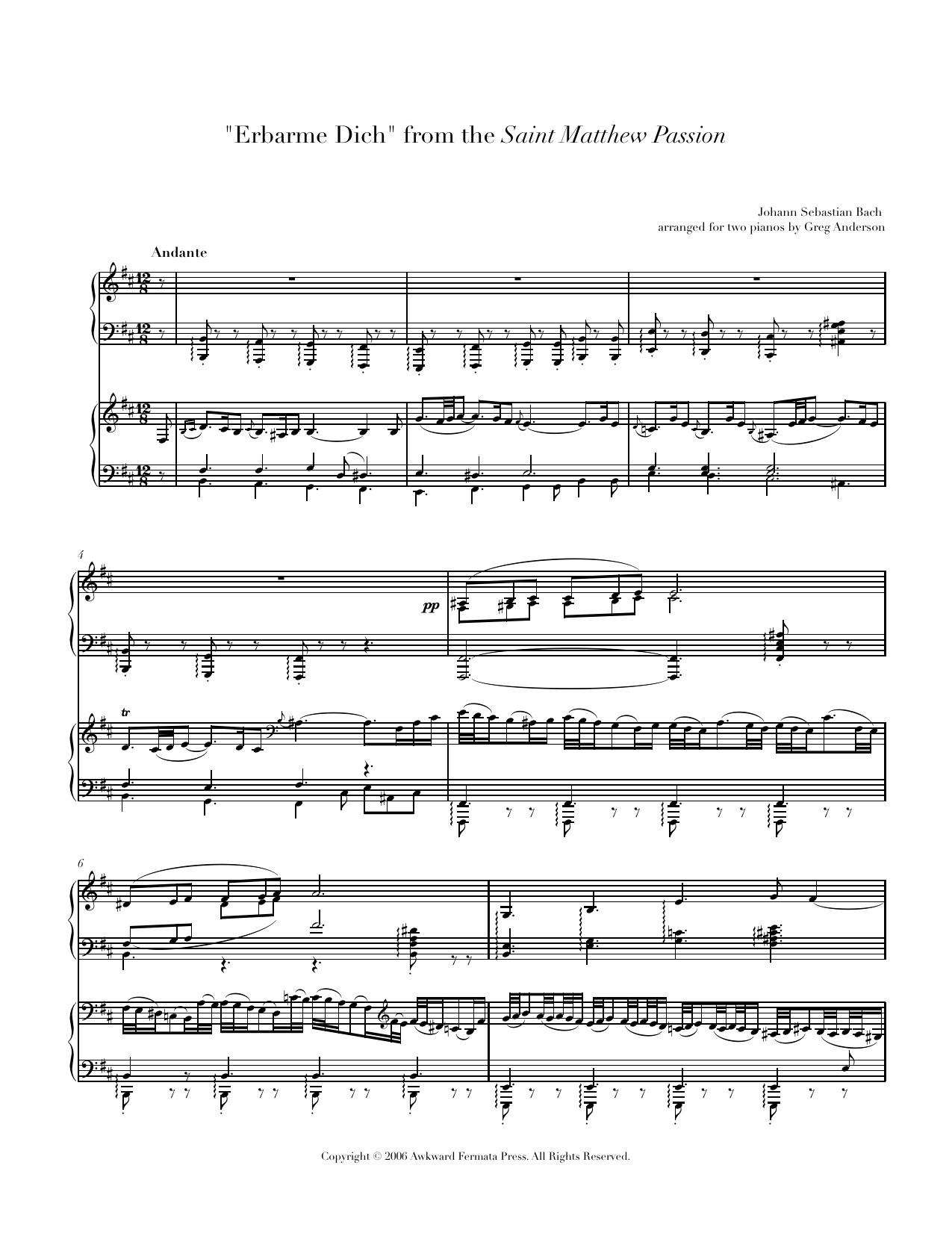 Image 1 of 2
Image 1 of 2

 Image 2 of 2
Image 2 of 2



“Erbarme Dich” from the St. Matthew Passion
by J.S. Bach
arranged for 2 pianos by Greg Anderson
intermediate-advanced
by J.S. Bach
arranged for 2 pianos by Greg Anderson
intermediate-advanced
by J.S. Bach
arranged for 2 pianos by Greg Anderson
intermediate-advanced
Details
"Erbarme Dich" from Matthäuspassion (“Have mercy” from the Saint Matthew Passion), BWV 244 by Johann Sebastian Bach, arranged for two pianos by Greg Anderson / Full score / Difficulty: Intermediate-advanced / Duration: 7 mins / Pages: 6 / Copyright: 2006 / Work number: 009 / Appears on the albums On Wings of Song, Reimagine, and The Art of Bach / Spotify / Apple Music
Also available: Saint Matthew Passion Suite for Two Pianos
Program Notes
The St. Matthew Passion was first performed in 1727 at the St. Thomas Church in Leipzig. Considering it his most significant work, Bach revised the piece in 1736 and twice during the early 1740s. Nonetheless, it was shelved after its initial performances and promptly neglected, as was customary for music of the day. The passion received a second premiere of sorts in 1829 when the 19-year-old Felix Mendelssohn organized a performance and conducted the work for the first time since Bach did so himself, albeit in an abbreviated and modified form. The performance was a great success, and this triumphant revival of a historical work did much to establish the modern-day notion of “classical music.” Bach's St. Matthew Passion has since remained one of the monuments of the literature.
Essentially a form of interactive theater, the St. Matthew Passion depicts the final sufferings and crucifixion of Jesus Christ. It sets chapters 26 and 27 of the Gospel of Matthew to music, sung in recitative by the various characters portrayed within the text. This is interspersed with personal reflection on the biblical verse, heard in Bach’s recitatives and arias set to a libretto by Picander, a contemporary of Bach.
The aria “Erbarme Dich” immediately follows a recitative set to Matthew 26:69-75 which recounts Peter’s repeated denial of Jesus and his eventual realization of his sins. The aria itself expresses Peter’s penitence through the lamenting words of Picander’s poem:
Have mercy,
My God, for my tears' sake!
Look hither,
My heart and eyes weep before you
Bitterly.
This aria was originally scored as a duet between alto voice and solo violin, accompanied by strings and continuo. Peter’s weeping is portrayed through the pervasive use of appoggiaturas, descending bass lines, and piercing dissonances, which in turn prompts us as listeners to take on—to feel—Peter’s repentance as our own.
Audiences of this arrangement, however, are free to give the work new meaning. With a simplified instrumentation and no lyrics at hand, the music becomes abstract, reduced to its purest essence. The pianos’ monochromatic sonority and clarity of attack highlight the harmonic complexities within the music; the tormented dissonances become even more tangible. Words are no longer necessary: the music speaks for itself, with poignancy and intensity.
I wrote this arrangement for two pianos for one simple reason: I wished to play this awe-inspiring music myself. Regardless of one’s religious beliefs, the St. Matthew Passion is a work of haunting beauty and emotional power, a work capable of inspiring self-reflection and personal growth. Though ostensibly about one man’s death, it is music that gives us a reason to live.
— Greg Anderson
Also Available
by J.S. Bach
arranged for 2 pianos by Greg Anderson
intermediate-advanced











